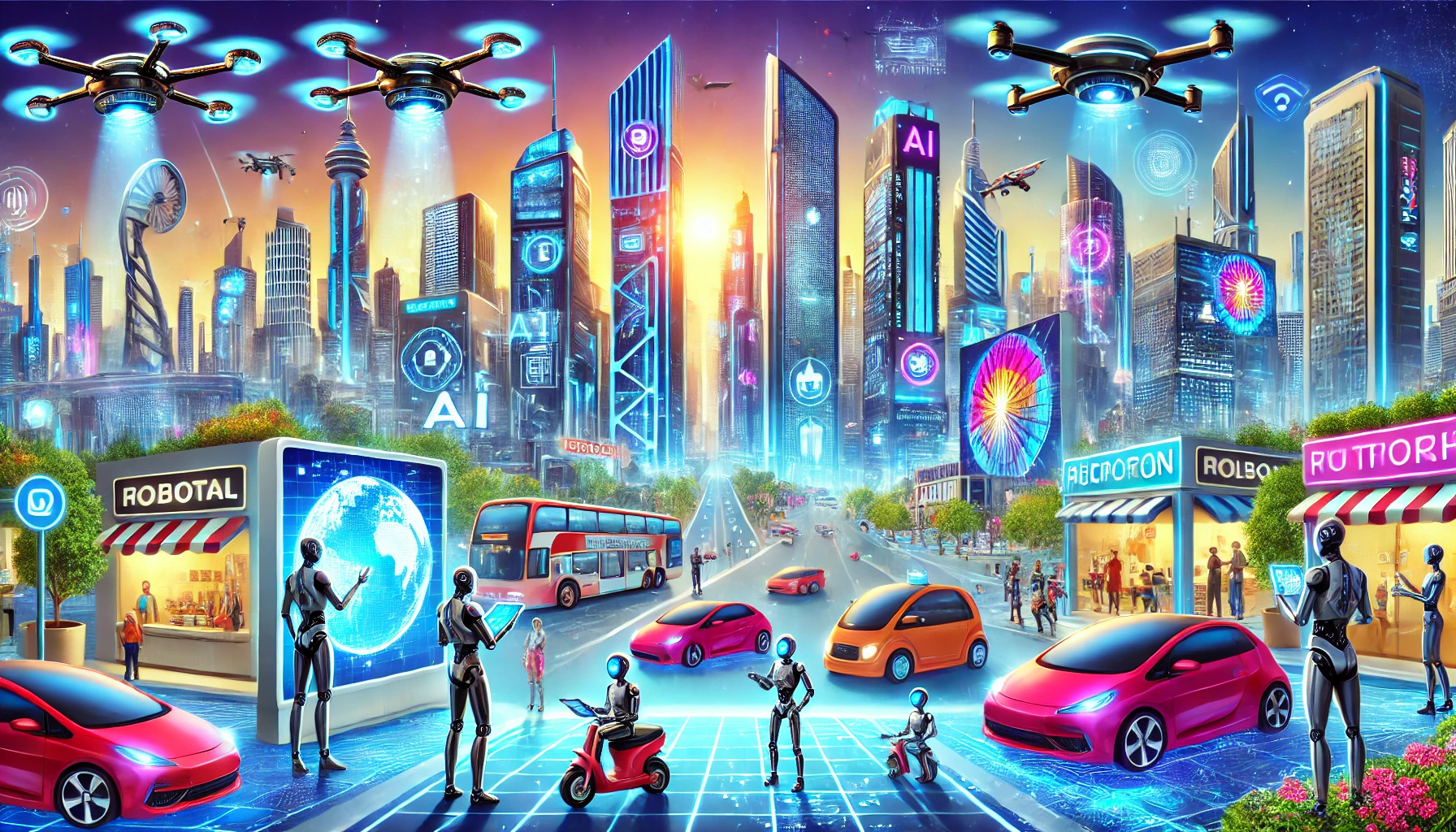
The Future of Tech: Upcoming Innovations That Will Change Lives
The Latest Innovations in AI and Their Real-Life Applications
Artificial Intelligence (AI) has rapidly evolved, and its innovations are set to shape the future in extraordinary ways. From enhancing productivity to making our daily lives smarter, AI is everywhere. Imagine AI-powered assistants managing your schedule, or even smart AI healthcare systems that predict diseases before they manifest. The applications of AI are infinite. AI in everyday life might soon include everything from virtual assistants, smart robots, and even personalized shopping experiences.
The future of AI is not just in robots; it’s in applications that we interact with every day. AI tools are now helping doctors diagnose patients faster and more accurately, businesses predict consumer behavior, and even helping individuals make decisions on health, finance, and more.
Best Smart Home Gadgets to Simplify Your Life
Who doesn't love the idea of a smarter home? In 2025, smart home technology will go beyond controlling lights and thermostats. Imagine a home where everything from your coffee machine to your door locks is connected and optimized through seamless automation. The best smart home gadgets will not only simplify your life but will also bring comfort, security, and energy efficiency to new levels.
Smart thermostats, like the Google Nest, will continue to evolve, learning your routines and adjusting temperatures accordingly. Meanwhile, smart lighting systems like Philips Hue will allow you to set the mood with just a tap on your phone. These advancements are just the beginning of how tech will completely transform how we live at home.
How IoT is Revolutionizing Industries
The Internet of Things (IoT) is rapidly revolutionizing industries by connecting everyday objects to the internet and enabling them to collect and exchange data. The future of IoT will see smart cities, advanced healthcare systems, and automated factories. In industries such as manufacturing, IoT sensors will monitor machines for predictive maintenance, saving companies time and money.
Smart logistics using IoT will also reshape supply chains, providing real-time tracking and optimizing delivery routes. The benefits of IoT are enormous, as it allows industries to work smarter, faster, and more efficiently. With 5G coming into play, IoT will see a massive leap, providing even faster and more reliable connections.
Top 5G-Enabled Devices You Need to Know About
5G is more than just a faster internet connection—it’s a game-changer in the way we interact with technology. Devices that support 5G connectivity are the next frontier. In 2025, the rollout of 5G-enabled devices will bring groundbreaking changes in everything from mobile phones to smart cars.
For instance, smartphones like the latest iPhone and Samsung Galaxy will leverage 5G technology for seamless streaming, gaming, and more. But it’s not just smartphones—5G will power next-gen augmented reality (AR) and virtual reality (VR) experiences, allowing you to immerse yourself in a digital world like never before.
5G’s Impact on Connectivity
5G will enable lightning-fast download speeds and low-latency connectivity, making it possible to stream high-definition content, play online games without lag, and even conduct real-time surgeries using robotic assistants. With the rise of 5G technology, the impact on everything from entertainment to healthcare will be enormous. Expect to see a revolution in connectivity that will open up new possibilities for industries and consumers alike.
Practical Uses of Sustainable Technologies in Everyday Life
As sustainability continues to be a pressing global concern, the integration of sustainable technologies into our daily lives will grow exponentially. From solar-powered gadgets to energy-efficient homes, sustainable innovations are no longer a thing of the future—they’re becoming part of our reality.
Solar energy systems will become more efficient and affordable, making it easier for homeowners to adopt solar panels. Additionally, smart energy management systems will optimize energy usage within homes and businesses, reducing waste and costs. And let’s not forget about electric vehicles—EVs will become mainstream with advances in battery technology, making them more accessible to the average consumer.
Conclusion: Embracing the Future of Technology
The future of technology is packed with incredible innovations that will transform how we live, work, and interact with the world around us. From AI-powered applications to sustainable technology and smart homes, the possibilities are limitless. As these advancements continue to shape our lives, one thing is certain: technology will make life simpler, more connected, and more efficient.
We are on the brink of a tech revolution, and now is the perfect time to embrace these changes. Whether you're using AI to streamline your daily tasks or adopting green technology to reduce your carbon footprint, the future is bright—and it's already here.
FAQs
1. What is the latest innovation in AI?
The latest AI innovations include more advanced AI assistants, machine learning algorithms for personalized experiences, and AI-powered healthcare systems that can predict diseases before they occur.
2. How can smart home gadgets simplify my life?
Smart home gadgets, like thermostats, lights, and security systems, can automate everyday tasks, provide convenience, save energy, and improve home security—all from your smartphone or voice commands.
3. How is IoT revolutionizing industries?
IoT is connecting devices and machines to the internet, enabling industries to monitor and optimize processes in real-time, improving efficiency, reducing downtime, and cutting costs.
4. What are the best 5G-enabled devices?
Top 5G-enabled devices include smartphones like the iPhone 14 and Samsung Galaxy S21, as well as smart devices like 5G-enabled smartwatches and home automation systems.
5. How can sustainable technologies help the environment?
Sustainable technologies like solar panels, electric vehicles, and energy-efficient systems reduce reliance on fossil fuels, decrease carbon emissions, and promote a greener, cleaner environment.